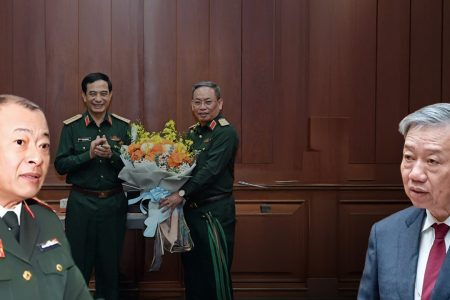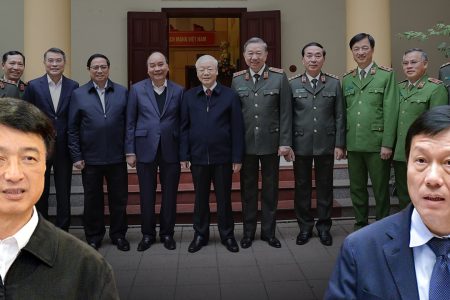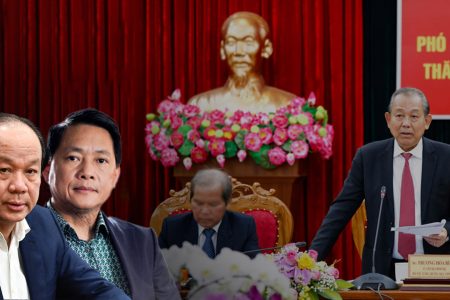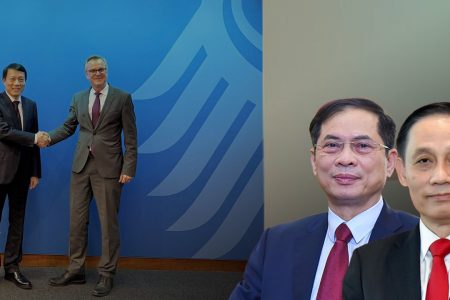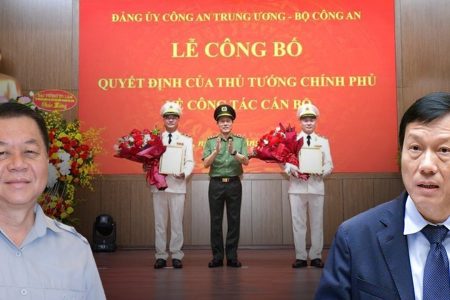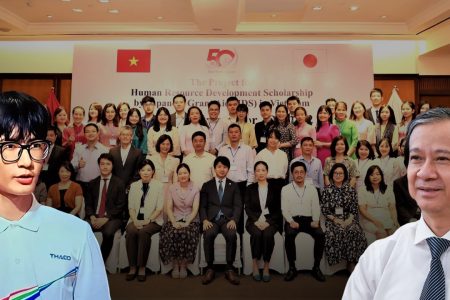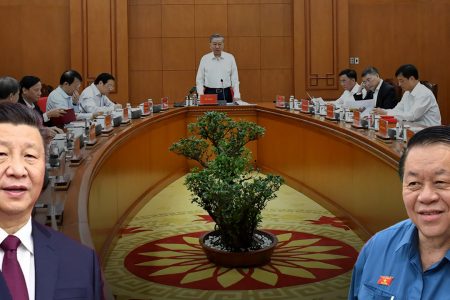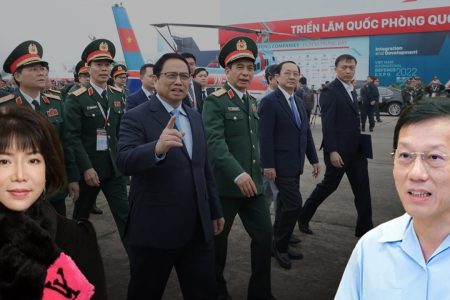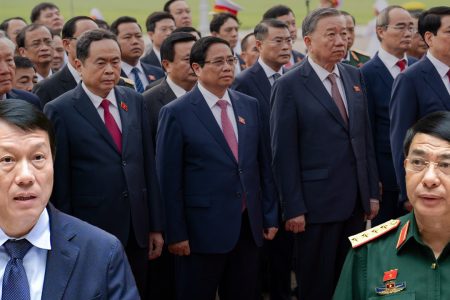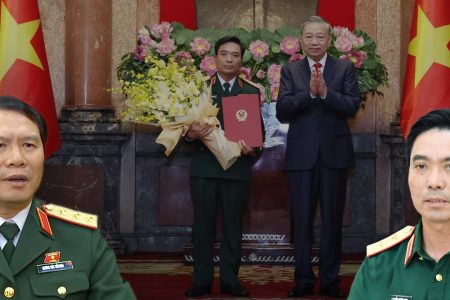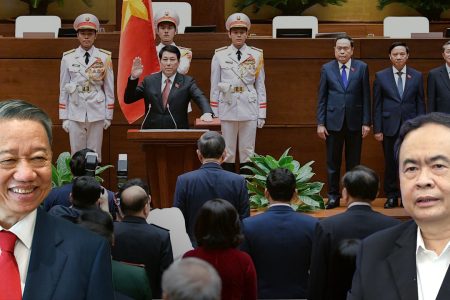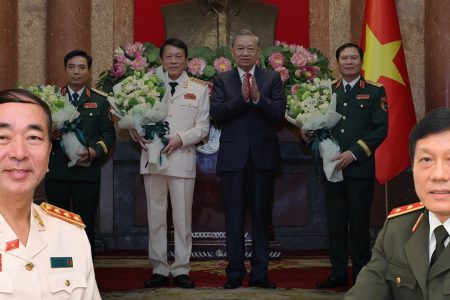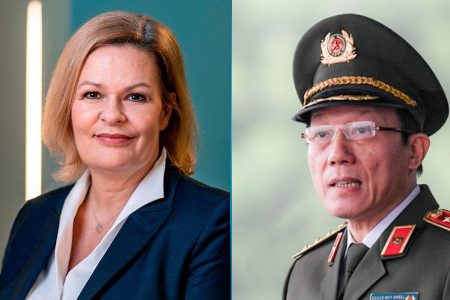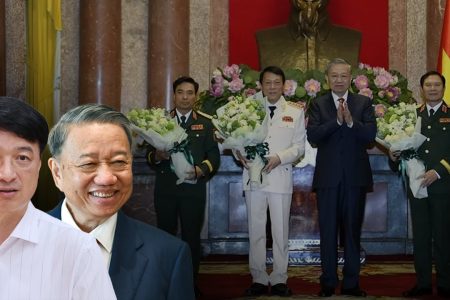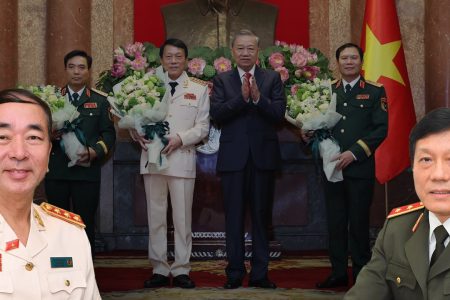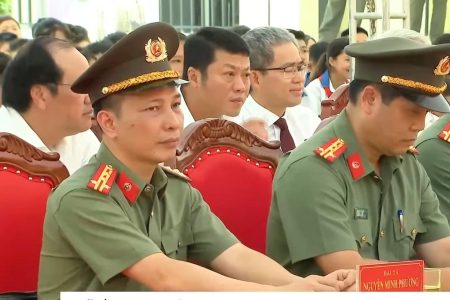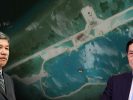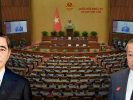
On the afternoon of November 17, 2020, Vietnamese National Assembly (NA)’s Secretary-General Nguyen Hanh Phuc consulted the national legislators on two issues related to the Law on Forces projected to participate in protecting security and order at the grassroots level. The first issue is whether it is necessary to enact this law. The second content is whether to assign the government to further study and complete the law project.
In the first content, there are 290/393 NA’s members who think that it is not necessary to issue this law.
In the second content, 206/393 legislators disagreed to assigning the Government to further study.
According to the draft law submitted to the parliament, the Ministry of Public Security wants to unify the current part-time street guard, civil defense force into a force involved in protecting security and order at the grassroots level. On average, each village has a grassroots security guard group of 5 to 10 people, and there are about 1.5 million people nationwide joining this force. The inspection report shows that the number of personnel of this force is currently 700,000 people. If the law is passed with a number of up to 1.5 million, it will increase by about 800,000 people.
According to former national legislator Le Van Cuong, many times in the past, members of the NA did not agree with the Government’s proposals. Whatever the voters agree, the legislators also showed a high consensus. And what the voters see is not appropriate, the legislators would debate and argue with the Government. That is normal. He added on whether or not to enact the Law on Forces involved in protecting security and order at the grassroots level:
“The NA’s members expressing such attitudes, I strongly agree. On the side of the police, they are also very worried about grassroots security, how to have enough forces to ensure a better social order and safety. But when setting up a grassroots security force, it adds a staffing organization and it affects the general.
Amid state agencies‘ downsizing trend, but they want to expand the police forces at the grassroots. Actually, this is also necessary for security at the facility, but it is not to the point of need to strengthen that force immediately. With the current practical situation, if any place is unsafe, the police from other places will help. If this law is passed, the police nationwide will bulge the apparatus because of the increased force.”
Speaking at the seminar on November 17, Major General Dao Thanh Hai, deputy director of the Hanoi City Police Department, said that sending the regular police force to the commune would not be effective because they were not local people and not understand the local people and its issues. According to Hai, if there is no law, it will be difficult for this force.
Minister of Public Security To Lam explained, because this force has a long history, many legal documents regulate, many activities of this force touch the right of freedom, democracy and the police rights should be regulated by law.
Major General Sung Thin Co (from Ha Giang province), former Deputy Commander of Military Region 2 questioned the Minister of Public Security that, now the police force is too crowded, a province must be at least 3,000 to 4,000 regular policemen, now more forces are added, is the regular force not enough to grasp the situation and handle the situation?
Mr. Dinh Duc Long, a Lieutenant Colonel of the People’s Army stated his views on this:
“The first is that I do not have accurate data and have no way of verifying how many policemen. It is their national secret, they are a monopoly so no one can verify it. But in my opinion, the police are full of roads. In addition, the State is now the police state and then nothing else.
Most of the big city leaders are from the police. For example, Mr. Nguyen Van Nen, the secretary of the Ho Chi Minh City Party Committee just took office from the police. In the party and government agencies, many were former police officers such as Pham Minh Chinh- head of the Central Organizing Committee, Truong Hoa Binh- standing deputy prime minister, Nguyen Hoa Binh- chief judge of the Supreme Court also came from the police. The police are the most reliable force of the regime, they have to develop and build up because the regime cannot believe in anyone else.”
Mr. Dinh Duc Long reiterated the statement of the late General Secretary Le Duan, “the police are the most loyal among loyal people, who only know the Party and themselves.”
To date, there is no publicly available number of police officers or traffic police officers in the country. On April 2, 2017, Professor Carl Thayer, an expert on Asian and Vietnamese affairs at the Royal Australian Academy of Defense, published on his blog an estimate of the number of police in Vietnam, from the official police with the branch card to the paramilitary forces under the command and maneuver of the Ministry of Public Security in 2013 was about 6.7 million, including 1.2 million police officers.
Thayer said the number was taken from an article by an Australian Federal security official named Laurie Gray in the Australian Federal Police magazine.
As an ordinary citizen in Saigon, Minh Duc believes that the number of police is numerous, but their main task seems not to protect the people but to suppress the people and defend the regime. He said, when in the neighborhood where he lives, there were fights that were dangerous to the lives of people, he kept calling and couldn’t see the police coming. But to suppress the protesters, the police are dense. He added:
“The number that the National Assembly member said, I do not know it is correct or not because this number is a secret. But the number is definitely huge. From the viewpoint of a citizen, every time I need to go to a police station at the ward level where I live, I see from a few dozen to hundreds of policemen of all kinds. This force is currently very large, but they also want to increase it further for the reason of ensuring security and order, protecting the people.
But in real life, I see them using this force to protect their regime and the ruling party. They use the police to rule over the people and suppress the people much more, not to protect the people and to maintain security and order. Not like that!”
Public opinion said that Vietnamese society is the ‘police state’ when this force has gained a lot of power in recent years and appointed a series of leaders of the Ministry of Public Security in April.
At the end of April 2020, the Ministry of Public Security had two more deputy ministers, Major General Le Quoc Hung, and Major General Le Tan Toi.
Major General Le Quoc Hung used to be the director of the Thua Thien – Hue province’s Police Department, a member of the Party Central Committee of the Public Security, and the Permanent Deputy Chairman of the Central Committee’s Party Inspection Committee. Major General Le Tan Toi used to hold similar positions in Bac Lieu province and director of Personnel and Organization Department, Ministry of Public Security.
Thoibao.de (Translated)



